New Moon: Embodied, ungendered magic
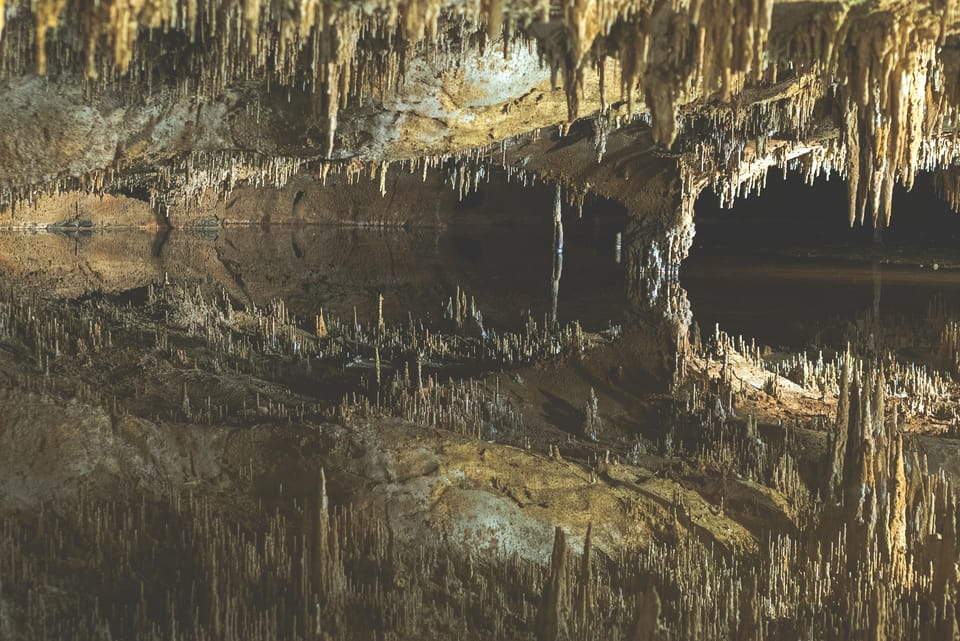
It's Friday. Hello.
Without delving into detail here — at least not today — I can unambiguously state that after ten years of hoping, planning, second-guessing, struggling with financial barriers, investigating whether I might have a condition that would significantly interfere with my ability, and above all fearing that I would not get the chance to even try before it was too late: I am not only ready (insofar as anyone ever is) to bear a child from my body, but I should be directly attempting that act starting in a few days.
This is all I'll mention of that process for at least a few months, depending on how my owner and I fare. But of course I cannot help thinking a great deal lately about my desire to experience this magic my body can seemingly perform, while also contextualizing that magic within my long, strange gender history. The magic of reproduction has formed a core element of my rites ever since I signed the Devil's book; so years ago I had no choice but to reconcile that tendency with my ironclad refusal to advocate for or accept the most common, trite narratives in this society regarding "womb magic."
It felt important to do that work in my head for a couple of reasons. One was that I had my own prior experiences of being a person with a womb but whose gender was passing through several categories besides "woman" — indeed, even now my gender is both "woman" and something distinctly separate, and for several years I was quite simply a man, then some other things. And my other motivation for this work was that living as a trans/gender-nonconforming person, moving within such communities, and having been abused by a transphobic "feminist" partner, I had already grown far too acquainted with the terf logics that people like me suffer from, that have also metastasized in reach over the last eight years, interweaving themselves further and further with contemporary fascism. These logics have sadly festered within witch/occult/neopagan spaces for decades, going back at least as far as Zsuzsanna Budapest's Dianic Wicca and other groups linked to Second Wave feminism; though even these people didn't start the proverbial fire, as the spark was lit in more patriarchally-governed schools of thought beforehand.
We know the meme: womb equals Moon, Moon equals woman, woman equals womb. This post is so far my most formalized rejection of those statements. But I am not only writing to negate. For again, I do see procreation as magic. I also see magic in my sexual organs and my monthly cycles, beyond the function of pregnancy.
Even if not every woman is called to carry children, and even if not every person who can carry children is a woman, and even if not every person who wishes to carry children can carry them, there is something about the capacity to gestate and deliver new life — or the potential, unknown capacity — that attracts me and assuredly many other people to engage on a ritual level, in the same way that we also deserve to engage (if we wish) with magic around our other bodily systems, the mysteries of brain and gut and blood and breath. I have been thinking for a good while about what form of engagement seems appropriate, and though in a way I wrote some preliminary thoughts here and here more than a year ago, it's time to go further.
I have to begin by dispelling some of the misunderstandings that I believe have combined to conflate womb, Moon, and woman in the first place.
"Menstrual cycles originate in lunar cycles"
Menstrual cycles are not unique to humans, but they are rare when considered against all other mammalian life. There are about thirty-six species on Earth today who menstruate. Most are elephant shrews, and many of the others are a fellow primates. Given how the cycle lengths of all these species vary considerably from 9 to 37 days, this alone should be a sign that menstruation is not inherently governed by the Moon's phases.
But people in our current society are commonly taught that the median human cycle length is 28 days, which is an accurate figure and only about a day shy of a 29.5 day lunar month. It's easy to assume on one's own, or to perpetuate an older assumption, that this suggests some kind of lunar link. Linguistically, moon, month, and menstruation are all derived from the same concepts, and this frequently applies beyond English. In my own case, leaving aside instances of inflammation[1] that occasionally skew things, I usually have a 29-30 day cycle; till recent disruptions, I spent quite a few years knowing I would bleed a few days after the New Moon and ovulate near the Full. I'll come back to that personal aspect further on.
However, all signs do not really point to even just Homo sapiens menstruation having a lunar link. For one thing, the range of our species' menstrual cycle lengths that can be regarded as medically healthy (rather than suggesting an inherent problem) is something like 25 to 32 days; some people thus cycle faster than the Moon does, and other people cycle slower. For another thing, it's extremely standard to experience cycle length fluctuations from month to month; nothing here is perfectly calibrated. And lastly, there is no known or apparent time of the lunar month when humans are most likely to menstruate; even if everyone's cycle were influenced by the Moon, it would clearly be influenced in radically different ways.
Unfortunately, it's remains tempting for many people to overlook these nuances for the sake of tidy storytelling, especially in the name of gender justice and reproductive justice. There's the increasingly folkloric[2] tale of how an ancient carved stick was discovered by modern archaeologists, which led to the usual puzzling about what the stick was for, along with some patriarchal projections that of course it was a man who did the carving; and then how a feminist argument was put forward that given the nature and number of the carvings, it was probably an early calendar, and if so "of course" a woman, presumed to menstruate, would be the first to create such a thing in order to track her cycle against lunar phases. Behold, a feminist-scientific rhetorical coup.
Stories about our bodies' relations with the cosmos are very important. Even crucial. But these stories can be right or wrong. I don't think we should never connect menstruation with the Moon, but we can't speak of it as a bodily universal, and we certainly shouldn't prescribe what some womb-fetishizing ritualists do — such as claiming every person with a womb ought to train themselves to menstruate in a particular lunar phase.
So, this is one thing to avoid. Let me turn to the next.
"Women are united in the experience of pregnancy potential"
As far as I'm aware, most if not all readers here do not need a primer on the existence of women without wombs, women with wombs who do not have menstrual cycles (whether due to menopause, infertility conditions, or intentional hormonal/surgical contraception), and people who have wombs but would not describe themselves as women (whether due to being intersex, trans, or both). It may not even be news to you that the word womb itself tends to hold connotations some people find uncomfortably gender-essentialist, whereas uterus can feel more genderless, more clinical.[3]
But besides giving a cursory note that the womb does not make the woman, I do want to dwell for a moment on the political context that has informed reactionaries, so-called progressives, and terfs in both categories all choosing to speak of the womb as some lowest common denominator for womanhood. Of course sometimes people speak of the vagina instead; then people also speak of the vulva, reminding the former group that the vagina is only the birth canal; but this hair-splitting usually comes up not quite in the context that I mean. I mean "the abortion debate."
On the right, there is the forced-birth tenet that women are united in their "gift" of potential motherhood (and then that this gift translates to social obligation). On the left, there is the pro-choice tenet that women are united in the risk of unwanted motherhood. Both these ideas underpin wildly opposing views on abortion's moral value, but they share the common, misguided assumption that woman and (fertile) womb are essentially identical, combining matters of reproductive justice and gender justice into the same issue.
What I wonder sometimes is how much these things really go together. Which is to say: I'm fairly certain they do go together in some way, because like it or not, most people who can become pregnant are women, and most women go through a phase in their life where pregnancy is possible. Patriarchy is men controlling women, and a major means of control available to them is to regulate women's reproductive capacity, both due to how widespread it is and due to the stakes involved. However —
And I perhaps cannot emphasize however enough —
While reproductive and gender justice overlap, it is not enough to treat the overlap as the entire story. It once again ignores nuance, complexity; and the consequences of such a choice are not only that trans women are excluded, trans men are misgendered, etc., but also that activists sometimes come to use language that in my opinion suggests a bizarre gendering of abortion as itself a special female experience. I don't mean there's really any left-wing political pressure on uterine bodies to abort rather than carry; there are plenty of other socioeconomic factors behind plummeting birth rates as it is. Yet given the number of women throughout modern history, especially women of color and/or disabled women, who have been nonconsensually sterilized or forced to abort, holding up abortion as a "feminine right" can leave an almost sickly ironic taste in the mouth at times.
Obviously I favor universal, zero-stipulation abortion access for all humans, and I think the practice of abortion medicine is as sacred as birth medicine. I am also concerned about how legal abortion rights are deteriorating in the country where I live. But I think that given how Second Wave feminism — which brought us a few good things but often terfery, swerfery, and a great deal of shame — occurred in the USA alongside the leadup to Roe v. Wade and then the decision's aftermath, I can't shake the feeling that at least in an anglophone setting woman = womb wouldn't be quite such a frequent conflation if abortion rights weren't incidentally prioritized as much as they are in this culture's feminism.
To be fair, if we turn more toward rape prevention, overall medical justice for women, workplace discrimination, or sex workers' rights, I think some other conflations could still occur. But with woman = womb, this is especially strengthened by the womb = Moon error discussed already — and then strengthened even more by Moon = woman.
Let me now turn to that part.
"The lunar is feminine"
To me, the Moon is in fact a woman. But my reasons for speaking of her that way are rooted intentionally in various parts of my witchcraft: in some of the cultural traditions I draw on (namely my engagement with Greco-Roman material), the Moon is female; and there are circumstances in which I ritually embody the Moon, and my gender is lately close enough to "woman" that sometimes it's simpler just to say so.
Meanwhile, among many peoples and traditions worldwide, the Moon is not a woman, but a man, and sometimes another sort of entity altogether. The male Moon at least is an element of Australian Aboriginal (mostly), Bakongo, Egyptian, Germanic, Hindu, Inuit, Japanese, and Mesopotamian cosmology. Scholars tend to consider it likely that the Moon was also male for pre-Christian Celts, and the Moon might even have been originally gendered male among the earliest Indo-European language speakers.
I think this information ought to speak for itself, but I want to highlight how it is simultaneously common to have a male Moon and also to have languages with a shared root for moon/month/menses. This is a beautiful mystery. It is not some modern revelation to distinguish cosmically between the menstrual from the feminine. Many peoples have done so across time.
And this brings me to one last cultural and mythological consideration.
"Womb envy"
Lately I've found that there is a problem when speaking of "womb magic" that goes even deeper than conflating wombs with women and the Moon. This problem is the assumption that reproductive magic is uniquely concentrated within the womb, to the exclusion of the phallus.
Such an assumption happens in a way that again feels very culturally specific to the society I live within. There is the trope that men wish to patriarchally control women because women have reproductive powers, a "womb envy" to offset Freud's theories. We are told that people who do not have wombs are frightened of the life-giving force that a womb contains, and also frightened of the ability to abort that life through various self-selected interventions. How true is this, really?
I think it is true on occasion, but in a self-fulfilling way. Many people without wombs, usually men, are taught within this paradigm to envy or fear the womb, and so they do. There is nothing intrinsic to the womb that must provoke such a reaction. At most there is the cisnormative cultural association between wombs and women — and the fact that in some cultural spheres, including much of pre- and post-Christian Europe, women have been positioned as the primary magic-wielding class.
By contrast, though, there are many cultural contexts in which men are the primary magic-wielders. And there are contexts in which people of other genders have that role, and contexts in which types of magic are divided between genders. In that latter case, we might suppose that people who arrange their societies that way perhaps see "women's magic" as identical to or containing "womb magic," but even this would still be at odds with womb magic as something uniquely powerful and related to reproduction.
For what is also plentiful across every continent, throughout every part of history? Phallic magic. There's many a fertility god identified in art by his enormous penis. Non- or pre-"Western" communities have a plethora of beliefs around exactly how reproduction occurs in the human and more-than-human world; but as much as it's easier to trace matrilineal descent than patrilineal in a setting without DNA tests, humans have largely always been clever enough — if cleverness is even needed here — to recognize that someone with a womb does not create new life arbitrarily.
I want to remind my kindred in ritualism: no matter your body or your gender, its capacity for life-making is magic. Even if you do not have a womb, and would like to have one. Even if you do not have a womb, and would not like to have one. Even if, like me, you have a womb but would rather not be spoken of in the modern binary, colonial sense of womanhood. And if you do have a womb, but would rather not call it that word — would rather not have the organ — would rather have another organ — your distancing from that organ's magic does not mean you have no right to other reproductive magic instead.
One of the greatest tragedies I know of in modern trans healthcare is the ongoing failure — or nonexistence — of research that would enable women without wombs to receive them and make children that way if they wished, and that would enable men without penises or testes to receive them and make children that way if they wished. This magic is a right for all.
Alternative models
I have ruled out a number of things that the womb might hold some intrinsic relation to. It is neither automatically feminine, nor automatically lunar, and it isn't even altogether unique. Within my rites, there are circumstantial reasons why the womb, the Moon, and the woman happen to intersect and intertwine; but the longer that I practice, the more I have begun to find my womb connected to the more-than-human world in other respects that I imagine might be easier for someone else to engage with if they want to operate from a very different gender standpoint, or if lunar work isn't in their repertoire.
Naturally as the womb is where seed takes root, it's no great leap to think about the Earth, and hence all things chthonic. Increasingly, I see the womb in rhythm with the topsoil, with mycorrhizal networks, with solid bedrock, with the hearts of mountains, with caverns and crevices, with the minerals down down deep, the crystals and the metals. These things can all be masculine as much as feminine, and they can be some other gender entirely.
The womb and its surrounding anatomy is also a source of fluids. The same can be said of all genitals, but I mean that the flow of water belongs with the womb as much as with other reproductive organs — and the association of water with femininity still does not have to apply if it is not desired. I see the womb in rhythm with lakes, rivers, and the sea — the sea, even without the Moon's influence. I see the womb as a fermenting realm as well, more than water: wine, beer, mead. There is the magic of blood, and the magic of a flower's nectar, a bee's honey. Again, no gender need be ascribed here.
Of course, chthonic and aquatic relationships for the womb may still seem too trite — old archetypes in the imagination that by dint of their age might yet put someone off. I ask then who else has also come to know the womb as celestial, not even by the Moon, but by the very stars. I see the womb as a nebula where stars are born. I see the womb as the black hole at the center of a galaxy, its gravity consuming that which enters and yet stabilizing billions of entities around it. And once again, there is no gender tethered to this.
I find great comfort in this imagery, in this relating, in this knowing. I'm someone who so far enjoys having a womb — even with the frequent turmoil of my endometriotic one — but besides not being a woman for a portion of my past, it is also possible I won't be a woman in the future. And though I work heavily with the Moon at the moment, this too could also change, and I wouldn't wish to lose touch with my womb's place in the cosmos simply because the Moon had stopped calling me.
Monthly cycles, rethought
My last thoughts for today are to return to womb = Moon.
Because, despite my criticisms of that fallacy, I find it a splendid coincidence that my own body's monthly cycle does happen to be approximately one lunar month. I think there are some of us in the world whose bodies can be sources of relation-making with the Moon, and for those of us who choose to embrace that potential, so be it.
As I mentioned earlier, for a long while[4] my cycle was very consistently aligned to menstruate just after the New Moon, ovulate on the Full Moon; I couldn't simply ignore that coincidence, and as I embraced it I felt as though some psychosomatic effect may have taken hold as my body had a peculiar tendency to self-correct irregularities. This was something I felt absolutely no conscious control over, but it happened anyway. It was as though my mind grew so accustomed to bleeding at a certain time that even if certain factors skewed my cycle early or late one month, the next month I would bleed on the "right" day. I've now had several months of interference from what I suspect are different medical causes, and my rhythms are too skewed to return to their old pattern right away, if ever; but even this past cycle, where there was less interference, I have a sneaking sense that things have begun to slowly self-correct again.
It isn't the Moon's doing — it's just some sort of embodied relationship on my own end. And that relationship does not require being a woman. Nor even does it require having a womb.
For here is the last thing to remember about wombs and monthly cycles: people with all bodies have monthly cycles. For those of us whose bodies primarily produce testosterone, this cycle is very subtle on its own; but whether one's estrogen and progesterone comes from one's own gonads or from an external formulation, having sufficient amounts of those hormones in circulation produces an automatic cycle. Trans women and other transfeminine people may not bleed on their periods, but if they are taking HRT, they have a phase of their hormone balances that is otherwise physiologically and emotionally equivalent to a period.
The magic of the womb is real, and the magic of the Moon is real, and sometimes these things may be found together in the same body — but they don't have to be.
[1] From acute illness, normal vaccine responses, endometriosis flareups, or the possible autoimmune condition I'm still investigating.
[2] I could put a real citation here if I chose, but I'm not going to — I say this tale is becoming folkloric because it's escaped containment from the original writings and has been increasingly embellished by circulating online.
[3] I'm mostly using womb in this post as a way of throwing the word back at people I disagree with — trying to deliberately un-gender this word that has the same lovely Old English ring to it as cunt. But obviously if a specific person would rather I say uterus about their own anatomy, I'd happily oblige; and in my day-to-day language I do err on the side of uterus.
[4] Possibly not long after I discontinued testosterone injections in 2013.
Rather than daunting, writing this piece felt immensely satisfying for me. I hope that on your end it did prove an affirming yet deconstructive read. Highly magical topics will continue over the next couple of weeks, as for the First Quarter I'll be turning back to tree lore, and after that is a special post for Litha/Midsummer on the subject of "sacred marriage" rites.
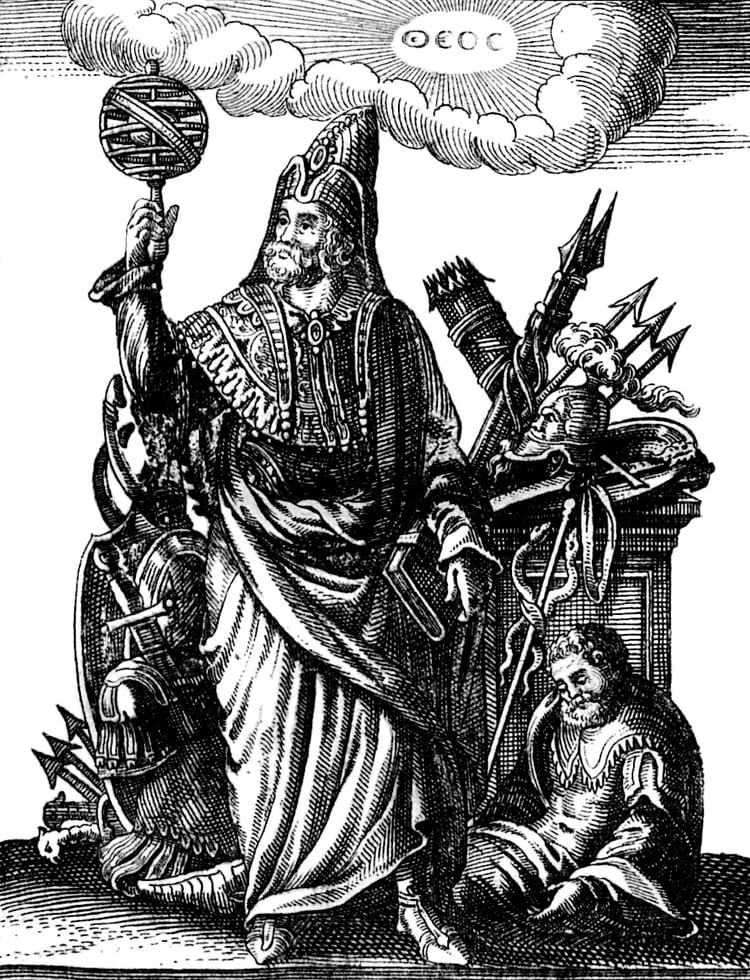
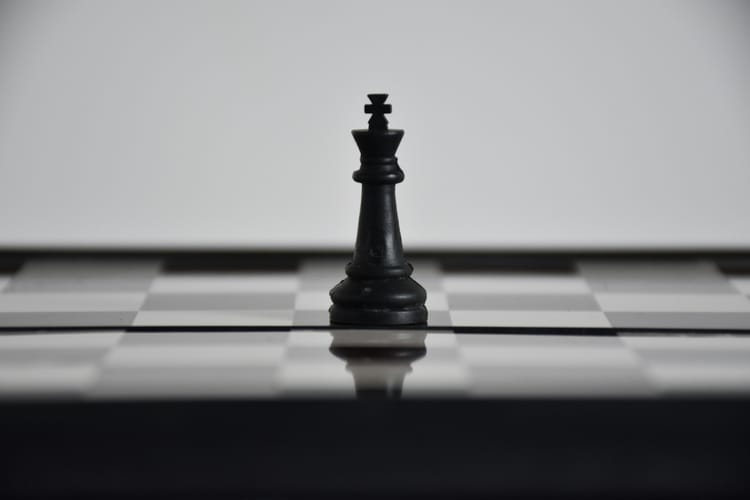
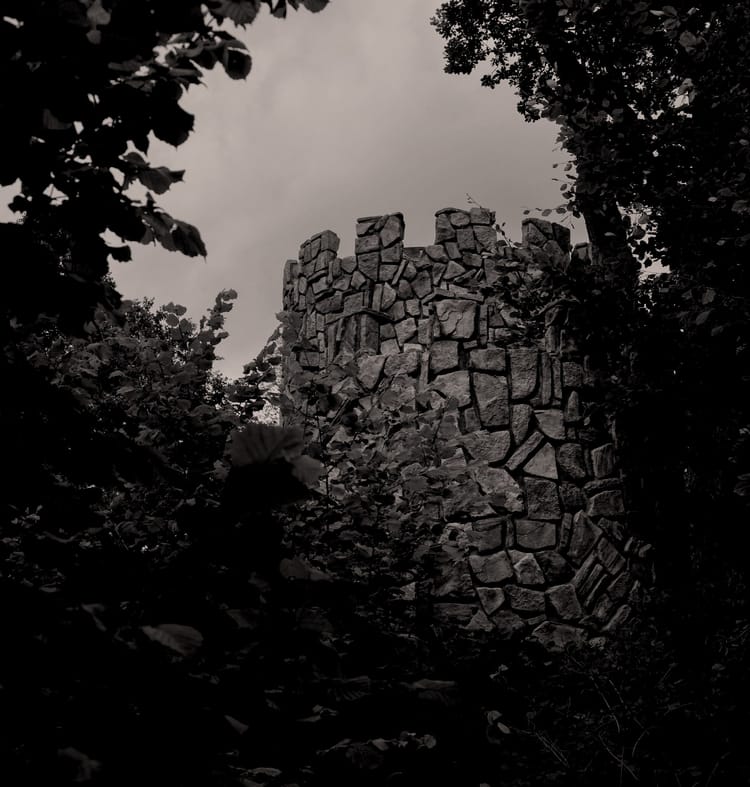
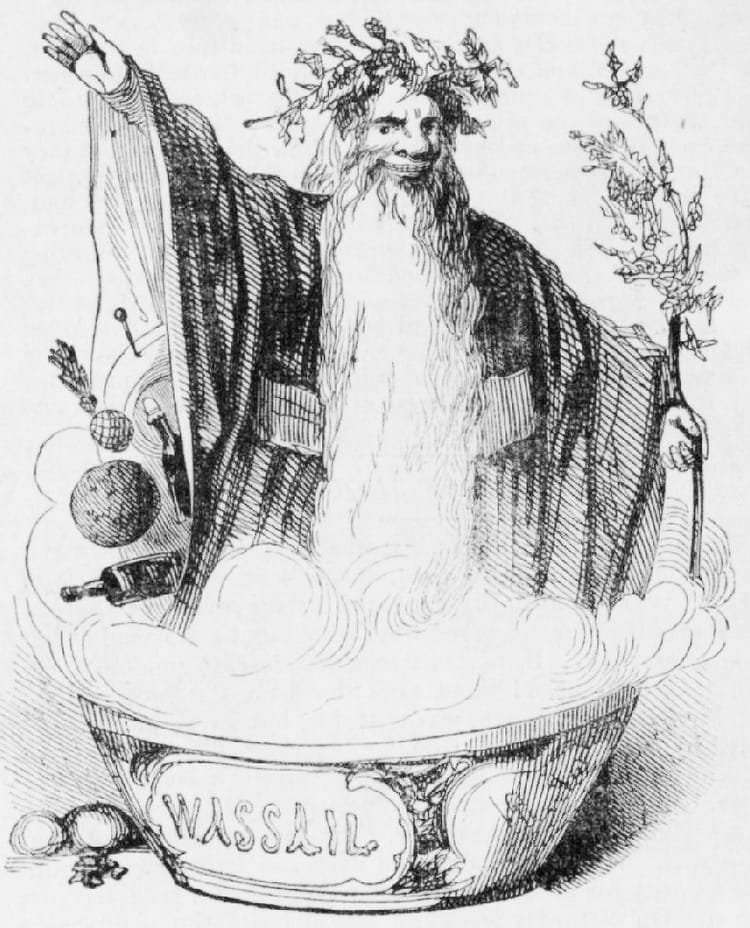
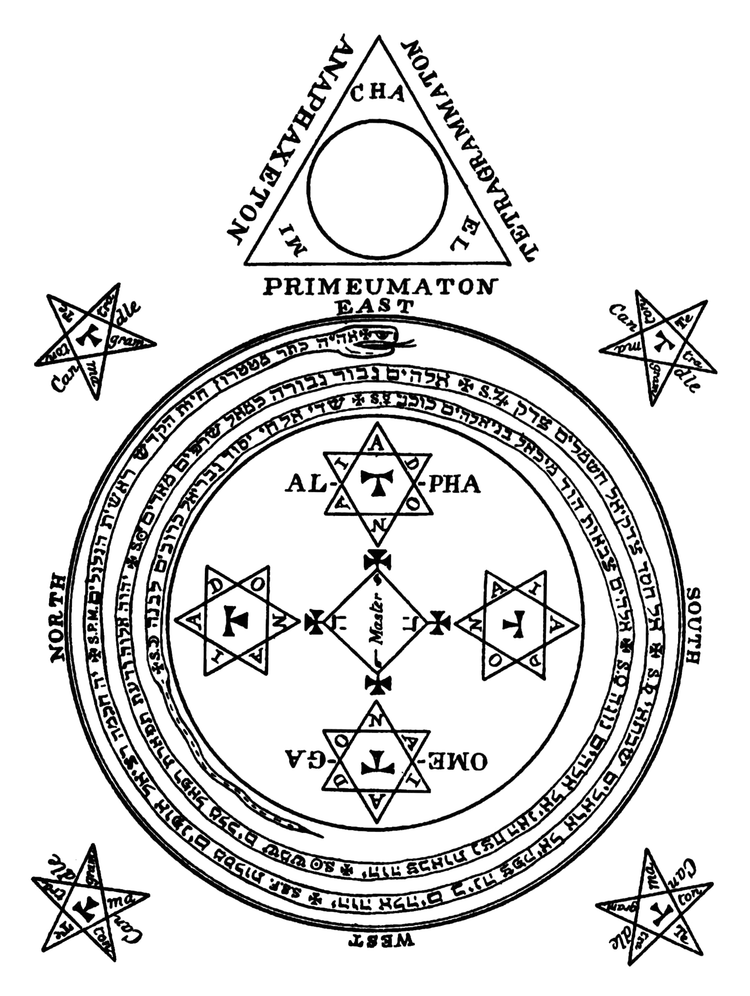
Member discussion